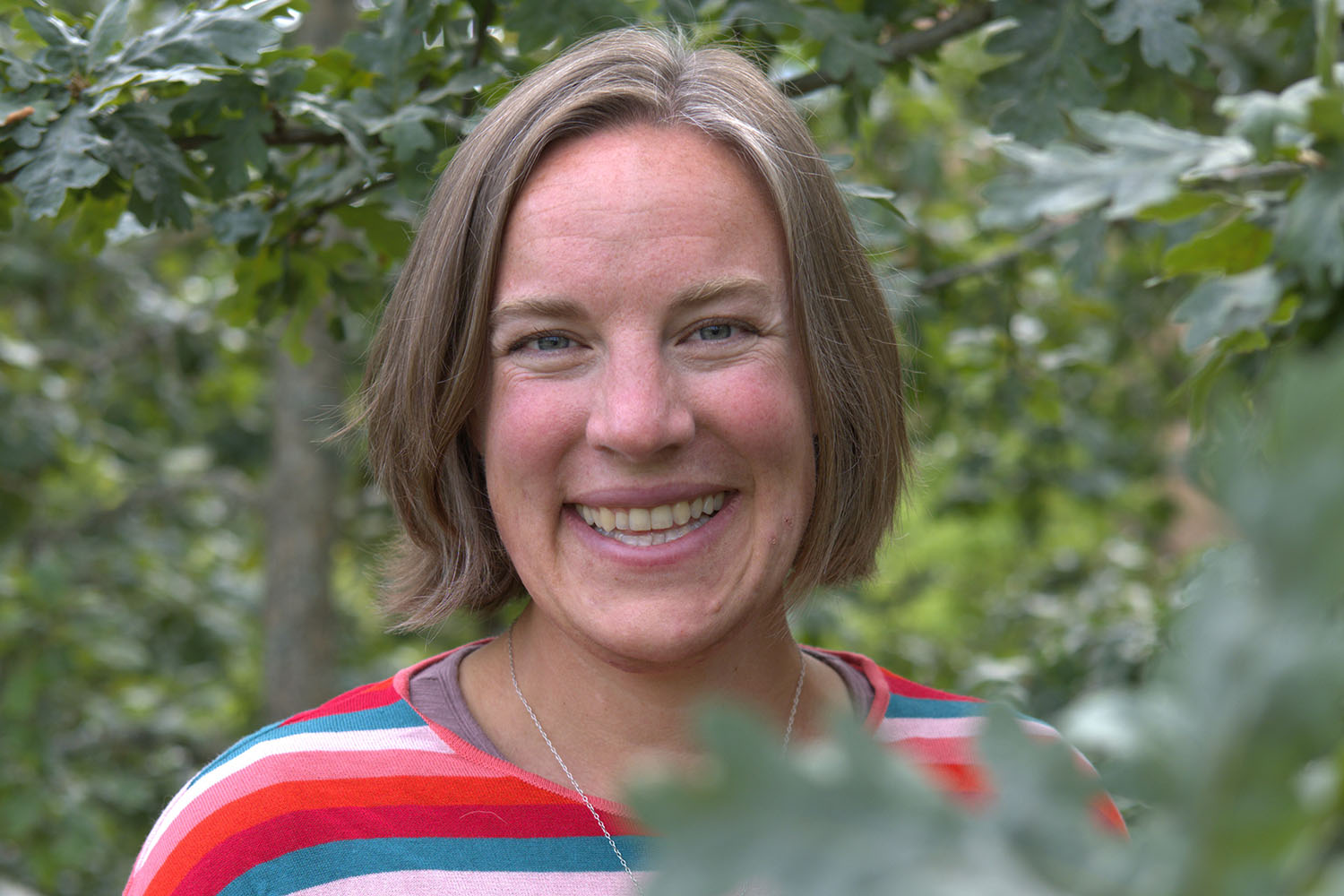The Canada Excellence Research Chairs (CERC) program aims to support world-renowned researchers and their teams to establish ambitious research programs at Canadian universities.
Current CERCs at UBC

Kayla King
Canada Excellence Research Chair in Evolutionary Dynamics of Host-Pathogen Interactions
Climate change is causing extreme heating, and altering the distribution of pathogens, while associated human activity and biodiversity loss are increasing human-animal contact. These factors will contribute to infectious diseases becoming more prevalent. The Canada Excellence Research Chair in Evolutionary Dynamics of Host-Pathogen Interactions aims to harness evolution to better understand infection/immunity in a changing world and prepare us in the race against future pandemics. Dr. Kayla King’s research program will test the impacts of warming on host susceptibility and pathogen evolution across animals. It will further explore pathogen evolution after host jumps and in populations with variable or waning immunity. This research has implications for predicting virulence, transmission, and the tempo of evolution as pathogens emerge or move to new areas with shifting climates. Research will principally use “evolution experiments” in animal-pathogen models, as well as state-of-the-art genomics, computational analysis, and mathematical theory in a global change biology framework.
Learn more

Isla Myers-Smith
Canada Excellence Research Chair in Global Change Ecology of Northern Ecosystems
The rapidly warming climate is reshaping the planet’s biodiversity. At northern latitudes, change is four times greater than the global average and impacts are particularly pronounced. The Canada Excellence Research Chair in Global Change Ecology of Northern Ecosystems will capture the transformation of tundra and boreal forest ecosystems in response to warming temperatures and shifting seasonality. The research will explore how vegetation change is altering wildlife habitats, movement of species and the collective impact of these changes on livelihoods of Indigenous communities in the Yukon and Northwest Territories. Dr. Isla Myers-Smith and the CERC team will integrate field research, remote sensing, data synthesis and community engagement to address critical research questions about northern ecosystems experiencing rapid and accelerating climate change, and the resulting implications for northern communities. The program will establish a Climate Change Ecology Research Hub in the western Canadian North to bring together experts from Indigenous communities and government agencies and academic researchers to establish common infrastructure and data collection to facilitate ecological and drone monitoring capabilities in this region.
Learn more
- World-leading scientists named Canada Excellence Research Chairs at UBC (UBC News)
- 'The land is tearing itself apart’: life on a collapsing Arctic isle (The Guardian)
- Polar heritage sites are slipping into the sea – but can one island live forever online? (The Guardian)
- #UBCForestry Team Shrub is studying the significant changes on Qikiqtaruk (TikTok)
- Ever wonder what it takes to conduct research in the Arctic? (TikTok)

Corey Stephenson
Canada Excellence Research Chair in Innovative Synthetic Methods for Translational Chemistry
Advances in pharmaceuticals, agrochemistry and energy are made possible by the development of new chemistry, specifically, new and enabling synthetic methods. Dr. Corey Stephenson, Canada Excellence Research Chair in Innovative Synthetic Methods for Translational Chemistry, is pursuing the development and application of new and enabling photo- and electrocatalytic methods for chemical synthesis and biomass upgrading. These approaches provide strategic advantages in applications due to broad functional group compatibility, mild reaction conditions, scalability and operational simplicity; and enable fundamental and translational research that impacts human health and contributes to new manufacturing approaches that focus on sustainability. Stephenson and his team will design new photo- and electrocatalysts for use in pharmaceutical and agrochemical synthesis and biomass upgrading, employing modern data science tools as a mechanism for optimization and refinement; develop new high throughput tools for the implementation of photo- and electrocatalysis in discovery and process chemistry; and design modular syntheses of important building blocks for medicinal chemistry to provide new avenues in drug development.
Learn more

Orlando Rojas
Canada Excellence Research Chair in Forest Bioproducts
The Canada Excellence Research Chair in Forest Bioproducts will deliver next-generation materials from renewable, forest-based resources. These sustainable and cost-competitive, advanced materials are key for the success of the bioeconomy and the reinvention of the Canadian forest industry. Benefits to Canada include a cleaner environment and reduced dependency on non-renewable resources. Leveraging genetics, synthetic biology and polymer chemistry/physics, the Chair will produce materials, products and devices that will reduce Canada’s greenhouse gas emissions, decarbonize our economy and improve our quality of life. These research discoveries will help control the interactions involving lignocellulosic structures at the micron- and nanoscales to achieve enhanced structural, optical and other properties. The effort will involve cellulose- and lignin-based particles, filaments, films and composites. Leading a multidisciplinary team and integrating strong local and global networks, the Chair will produce world-leading science, innovative products and processes, accelerating demand for forest bioproducts with high societal impact.
Learn more

Sriram Subramaniam
Canada Excellence Research Chair in Precision Cancer Drug Design
While many drugs induce responses and prolong survival, most cancers adapt through clonal evolution to develop treatment-resistant, lethal disease. The discovery of drugs targeting newly identified cancer drivers remains a slow, challenging and costly process. The Canada Excellence Research Chair in Precision Cancer Drug Design will use state-of-the-art tools in genomics, cryo-electron microscopy and computer-aided drug discovery in a precision oncology framework to lead an internationally unique research program. The aim is to revolutionize the way we discover and develop effective anti-cancer treatments. The program will be interdisciplinary, capitalizing on trans-institutional collaborations, including engineering, chemistry and biology, with a variety of partnerships with the private sector. We seek to be the global leaders in the emerging era of integrating genome-derived target discoveries and their translation to patient-oriented research for cancer drug discovery in a timely and cost-effective manner.
Learn more

Erik Snowberg
Canada Excellence Research Chair in Data-Intensive Methods in Economics
Erik Snowberg plans to make The University of British Columbia into the world leader in empirical political economy research. The Canada Excellence Research Chair in Data-Intensive Methods in Economics at the university is using innovative data to understand the effects of politics and policy on the economy. Snowberg and his team’s research will explore how business and environmental groups can collaborate with government to simultaneously improve economic productivity and quality of life.
Learn more
Previous CERCS
- Matthew Farrer, Canada Excellence Research Chair in Neurogenetics and Translational Neuroscience (2010 Award)
- Jennifer Hoffman, Canada Excellence Research Chair in Quantum Materials and Devices Based on Oxide Heterostructures (2015 Award)
2022 Competition
The results of the 2022 competition were announced in fall 2023.